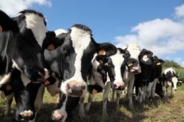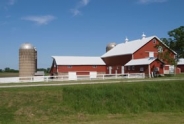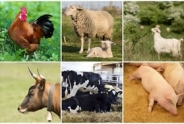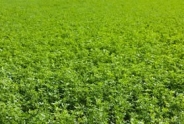Grains
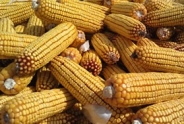 The Field Crops Program provides research-based field crop production recommendations and resources. Assistance is accessible through educational programs, fact sheets, bulletins, articles, websites and individual contacts through on-farm visits to meet the needs of the producers. The field crop program is also very active with on farm agronomic research and demonstration projects. The goal is to improve crop production efficiency through increased yields, improved quality, decreased input costs, protected yields and new technologies.
The Field Crops Program provides research-based field crop production recommendations and resources. Assistance is accessible through educational programs, fact sheets, bulletins, articles, websites and individual contacts through on-farm visits to meet the needs of the producers. The field crop program is also very active with on farm agronomic research and demonstration projects. The goal is to improve crop production efficiency through increased yields, improved quality, decreased input costs, protected yields and new technologies. GRAINS CATEGORIES
USDA to Provide More Than $3 Billion to Commodity and Specialty Crop Producers
Fall Burndown Weed Control Options
Mike Hunter, Field Crops Specialist
North Country Regional Ag Team
Ear to Ground - July 2022
Kitty O'Neil, Team Leader, Field Crops & Soils Specialist
North Country Regional Ag Team
Burndown herbicide options in no till soybeans
Mike Hunter, Field Crops Specialist
North Country Regional Ag Team
Last Minute Prep for 2022 Spring Crops
Kitty O'Neil, Team Leader, Field Crops & Soils Specialist
North Country Regional Ag Team
Spring planting season is fast approaching, but there's time for some last-minute preparations. While we always prioritize efficient use of fertilizers, seed and other inputs, 2022 pricing and availability puts and extra importance on this strategy. How many items can you cross off this to-do list?
Planting Enlist E3 soybeans in 2022?
Mike Hunter, Field Crops Specialist
North Country Regional Ag Team
Are you planting Enlist E3 soybeans in 2022? If so, one of the tools in the weed control toolbox will be the option to use one of the two registered 2,4-D choline herbicides for use on Enlist E3 soybeans. In January 2022, the EPA approved a seven-year registration of Enlist One and Enlist Duo herbicides. Enlist One and Enlist Duo are the only 2,4-D choline herbicides registered for over-the-top use in 2,4-D tolerant soybeans. Enlist E3 soybeans are also tolerant to the over-the-top application of both glyphosate (Roundup) and glufosinate (Liberty) herbicides.
Spring 2022 Weather Outlook
Kitty O'Neil, Team Leader, Field Crops & Soils Specialist
North Country Regional Ag Team
We begin the 2022 growing season in NNY with no drought classifications, for a welcome change. Our snow has mostly melted and soil frost is on the decline. The North Country is a tiny bit behind normal soil moisture as of this date in late March, but the deficit is small. March temperatures have been just a bit warmer than average so far.
Kitty O'Neil, Team Leader, Field Crops & Soils Specialist
North Country Regional Ag Team
Managing Corn Rootworm in NY to delay Bt resistance (& save seed costs)
NNY Receives Official "Abnormally Dry" Classification, May 19, 2020
Kitty O'Neil, Team Leader, Field Crops & Soils Specialist
North Country Regional Ag Team
Burndown herbicide options in no till soybeans and corn
Mike Hunter, Field Crops Specialist
North Country Regional Ag Team
Interim Guidance for Horticulture
Announcements
No announcements at this time.

